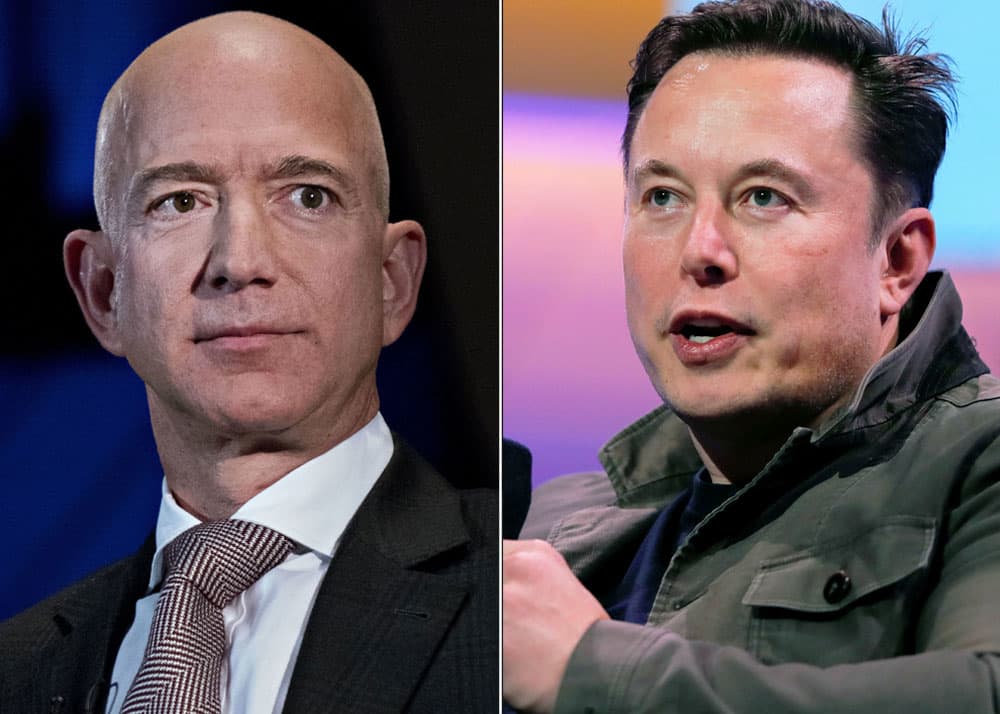The wealthiest Americans may be dodging as much as $163 billion in income taxes every year, according to the U.S. Department of the Treasury, and many leverage tax laws to do it legally, financial experts say.
Although U.S. levies increase with income, the ultra-wealthy often finesse the tax code to reduce how much they owe. And some billionaires, such as Amazon founder Jeff Bezos and Tesla CEO Elon Musk, pay little to no taxes compared to their wealth, a ProPublica report found.
“As long as you’re adhering to the law, everything’s fair game,” said certified financial planner Sharif Muhammad, founder and CEO of Unlimited Financial Services in Somerset, New Jersey.
More from Personal Finance:
Top 1% dodge $163 billion in annual taxes, Treasury estimates
House Democrats’ capital gains tax proposal is better for the super rich than Biden plan
Millionaire taxes would increase 11% in 2023 under House Democrat plan
While most Americans earn money through labor, such as salaries and benefits, the super affluent may receive income from interest, dividends, capital gains or rent, from investments, known as capital income.
Everyday Americans typically cover taxes through their paychecks, though the 1% may not see income on their tax returns because they can delay selling investments or use losses to offset capital gains.
For example, an executive may receive stock-based compensation, and when it’s time to sell, they may sell other losing investments the same year to zero out their taxable growth, Muhammad said.
Another popular tactic, asset-based lending, allows the wealthy to borrow money against their portfolio when they need cash, eliminating the need to sell appreciated investments that may incur gains. Plus, the portfolio loan isn’t taxable or reported on a tax return.
“That’s probably one of the most prominent ways they are able to keep that income off the purview of the IRS,” Muhammad said.
The affluent often hold assets until death, avoiding capital gains taxes by passing property to heirs. The value of the inherited property generally adjusts to what it’s worth on the date of death, known as a “step-up in basis.”
President Joe Biden has called for taxing gains at death, with an exemption for growth less than $1 million for single filers and $2.5 million for married couples. However, House Democrats dropped the measure from their $3.5 trillion spending plan last week.
Wealth transfer taxes
“For the ultra-wealthy, it’s not all about income tax,” said Lisa Featherngill, CFP and national director of wealth planning at Comerica Wealth Management in Winston-Salem, North Carolina. “The wealth transfer tax is just as important.”
When someone passes wealth to heirs or gives assets during life, they may be subject to up to 40% federal estate or gift taxes for property worth more than $11.7 million for individuals and $23.4 million for married couples, thanks to former President Donald Trump‘s 2017 tax overhaul.
While these thresholds will decrease to about $6 million and $12 million after 2025, House Democrats want to drop the exemption to $5 million to help fund their spending plan.
For the ultra-wealthy, it’s not all about income tax. The wealth transfer tax is just as important.Lisa FeatherngillDirector of wealth planning at Comerica Wealth Management
In the meantime, wealthy families are making gifts to reduce their taxable estates ahead of the 2026 deadline, Featherngill said.
They also use estate planning strategies, such as so-called dynasty trusts, which allow families to pass wealth from generation to generation without the risk of incurring estate taxes at each death.
House Democrats have proposed reeling in some of these popular techniques to help fund their budget plan.
Those who are philanthropic may also make charitable gifts, allowing donors to claim a federal write-off if they itemize tax deductions.
Wealthy families may give to a so-called donor-advised fund, which benefits a charity over time. Those making larger gifts who want more control may set up a private foundation, Featherngill said.
